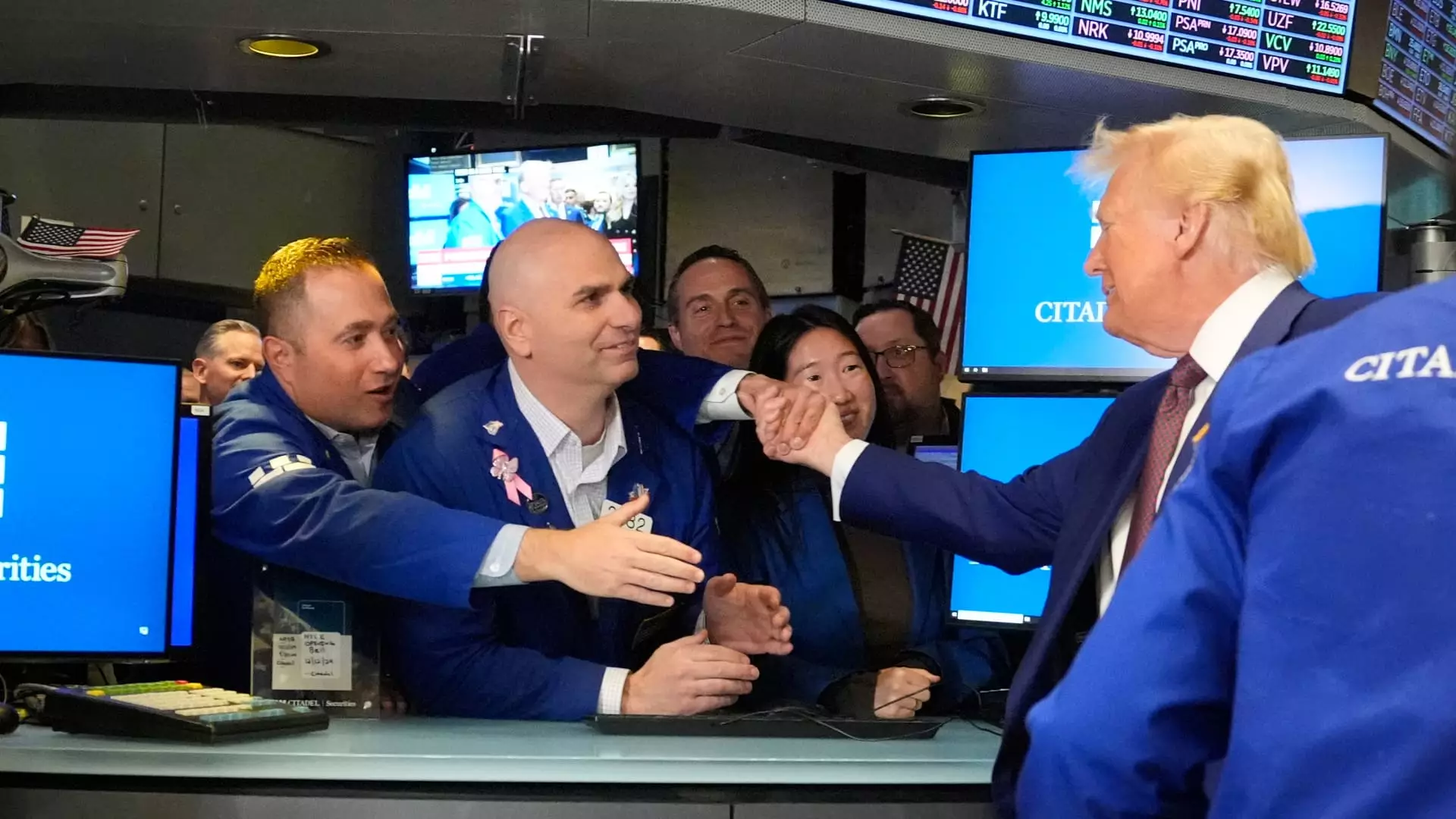On Thursday, President-elect Donald Trump made headlines not just for his election victory but also for ceremonially ringing the opening bell at the New York Stock Exchange. This event, symbolic in nature, embodied the anticipation surrounding his presidency and its potential impact on the stock market. During an interview with CNBC’s Jim Cramer, Trump opted for caution over enthusiasm, opting not to directly urge investors to dive deeper into stock purchases. By expressing concern over market volatility, he demonstrated an awareness of the fragile nature of stock investments, cautioning that the market could experience dips at any time.
Trump’s relationship with the stock market has been a focal point of his business rhetoric since he first took office. Throughout his tenure, the S&P 500 index experienced substantial growth, nearly doubling its value with a 68% increase. This remarkable ascent can be attributed in part to significant corporate tax cuts, a cornerstone of his fiscal policy. Additionally, the Federal Reserve’s strategy of maintaining low-interest rates aimed at stimulating economic activity also played a crucial role in inflating stock prices. However, the question remains whether this growth was sustainable or merely a product of favorable conditions that might not replicate in the future.
Tax Strategies and Economic Growth
During his remarks at the New York Stock Exchange, Trump reignited discussions about slashing taxes once again, proposing a potential reduction in corporate tax rates from 21% to as low as 15% for companies that manufacture products domestically. This idea reveals an ongoing belief in the power of tax incentives as a means to elevate economic performance and drive business investment. Nonetheless, critics often ask whether such policies create a disproportionate advantage for large corporations at the expense of smaller firms and the working class.
Contributing to the event were financial titans like David Solomon of Goldman Sachs and Bill Ackman of Pershing Square, whose presence underscored the significance of corporate America in Trump’s vision. Ackman’s later remarks captured a broader sentiment: that robust business ecosystems lead to rising stock markets, improved wages, and overall economic growth. This perspective presents a compelling argument for the interrelation of private enterprise prosperity and community welfare, encapsulating the idea that a thriving stock market can yield benefits for all, provided that the gains are distributed equitably.
Despite exercising caution in his stock buying recommendations, Trump remains optimistic about the long-term prospects of the American economy. His statement framing the U.S. as a unique economic powerhouse reflects a belief in its fundamental resilience and potential, a sentiment that resonates with many stakeholders in the financial market. However, as the incoming administration prepares to implement its policies, both investors and citizens alike will be closely watching how these strategies unfold amidst an ever-changing economic landscape.
President Trump’s approach to the stock market intertwines cautious optimism with strategic planning, aiming for an economy that can uphold dynamic growth while addressing volatility with prudence.

